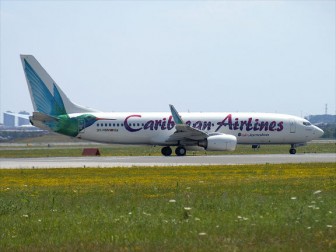Efforts by Guyanese exporters to secure structured and reliable markets for locally produced goods in Canada will continue to be challenged by inadequate and unreliable air transport services and the need for local exporters to meet certification standards for food imports, according to Chairman of the Trade and Investment Committee of the Guyana Manufacturing and Services Association (GMSA) Clem Duncan.
Some Guyanese businesses seeking either to create new markets or to consolidate existing ones in Canada have told this newspaper that they continue to pursue those objectives despite constraints which include the absence of a reliable air cargo service and difficulties associated with securing payments from importers in Canada.

One local exporter told this newspaper that the current arrangement under which he exports mangoes to the Toronto market requires him to respond at short notice to offers of cargo space on passenger flights. He said that apart from the problem of short notice the terms and conditions of his contract with Caribbean Airlines meant that the airline was not liable for spoilage.
Duncan told Stabroek Business that he was aware that some local exporters were conducting business with Canadian importers “on a hit or miss basis”. According to Duncan “sometimes these arrangements work and sometimes they
do not.”
Meanwhile, Duncan said, following a 2011 visit to Canada by a GMSA delegation, facilitated by the Canadian Trade Facilitation Office, attempts had been made to have Air Canada fly to Guyana. “There were problems and that fell through, Duncan said. He said he had learnt that subsequently two overseas-based Guyanese entrepreneurs had approached the Jagdeo administration with separate proposals for passenger and cargo services between Guyana and Canada but were told to submit a single proposal. “As it happened that never came to fruition,” Duncan said.
Meanwhile the GMSA official told Stabroek Business that the association had secured the support of the Canadian Trade Facilitation Office (TFO) to conduct workshops with potential exporters to assist them in meeting certification standards. Duncan said the supporting role being played by the TFO was invaluable since it would otherwise cost local operators “significant sums of money to bring in consultants.”
Asked whether the local manufacturing sector was otherwise equipped to undertake “regular commercial trading transactions” with Canada, Duncan said while this was a work in progress it was not his view that, as a sector, local manufacturers were quite ready. “There may be, perhaps a dozen or so manufacturers who are in a position to pursue regular commercial arrangements. On the whole, however, the sector is not ready,” Duncan said.
Meanwhile Duncan is advocating that Guyanese exporters pursuing commercial transactions with importers in Canada do so under arrangements that are secured by Letters of Credit in order to protect their financial interests. In recent weeks, Stabroek Business twice spoke with local exporters who said there had been cases in which they had not been paid by importers in Canada for goods exported to that country.




